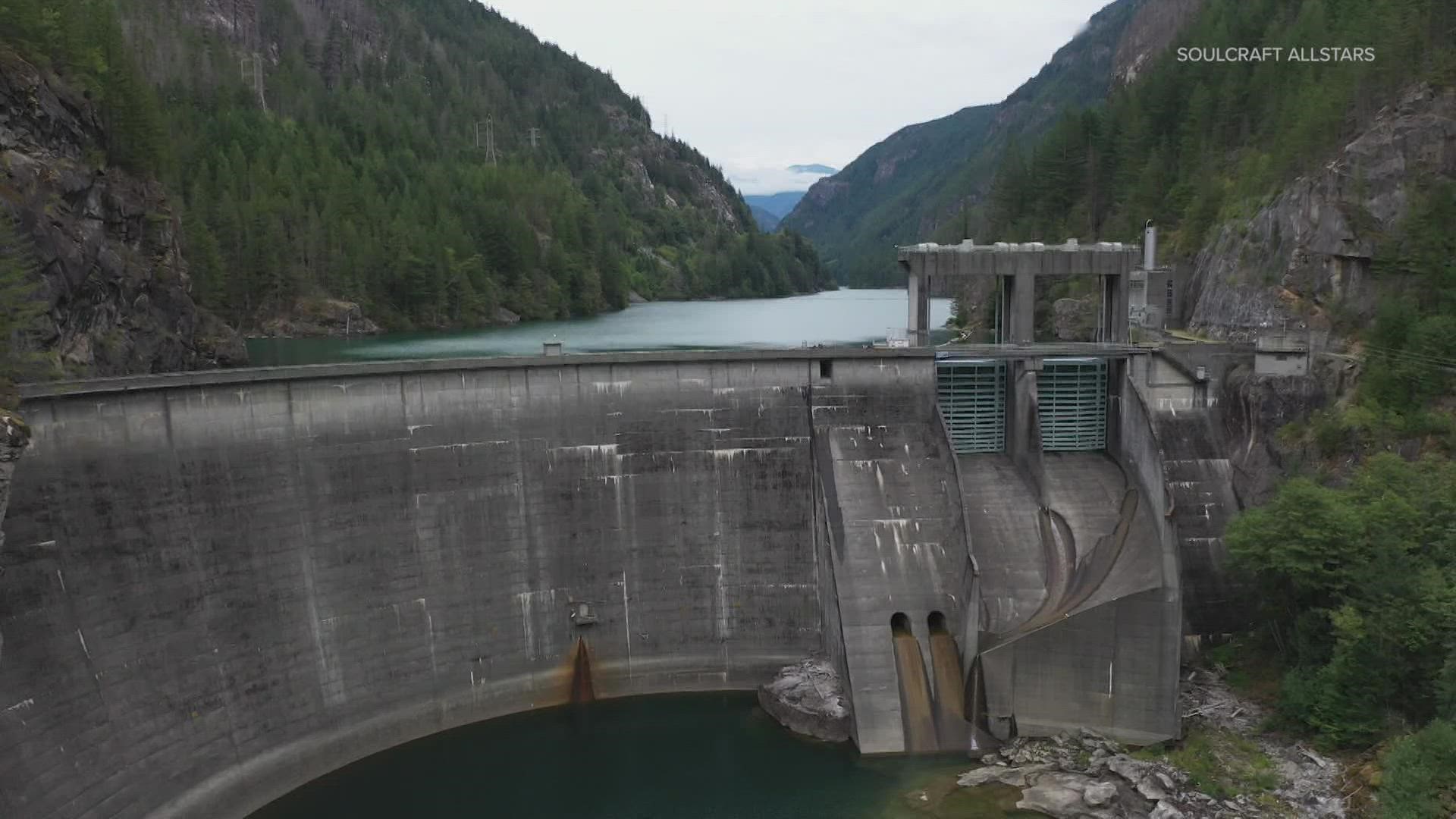SEATTLE — The Washington State Court of Appeals gave the green light for the Sauk-Suiattle Indian Tribe to proceed in its “greenwashing” litigation against the City of Seattle.
In September 2021, the Tribe, based in Darrington, filed a lawsuit against the city, alleging City Light’s claims that it’s the “Nation’s Greenest Utility,” and that its hydro-electric operations on the Skagit River have improved conditions for salmon are misleading and harmful to the tribe.
The Tribe said the city couldn’t claim its dams are green because they lack fish passage, like nearly every other dam in the Pacific Northwest. Fish passage infrastructure transports fish above and below dams, allowing them to access additional habitat. On the Skagit, tribes and government resource agencies claim the dams block 37% of the river to salmon and other fish.
“The Washington Court of Appeals made a just and sound decision today,” said Sauk-Suiattle Tribal Chairman Nino Maltos in a statement. “The truth is important to the Tribe.”
A spokesperson for Seattle City Light said the utility is reviewing the opinion and assessing next steps.
“That said, we value the ongoing participation of the Sauk-Suiattle Indian Tribe in the (Federal Energy Regulatory Commission) relicensing of the Skagit River hydroelectric project. We look forward to continued engagement with the Tribe in that process,” said City Light Media Relations Manager Jenn Strang.
In the original complaint, the Tribe alleged when Seattle took credit for improving conditions for salmon species on the Skagit, it “wrongfully shifted blame” for dwindling fish populations from the city’s dam operations to the tribes. The “public misperception,” wrote the Tribe, makes them a target of “public ire, harassment, and vandalism.”
“Seattle has done the worst for salmon while claiming to be the best, meanwhile pointing the finger at everyone else for Skagit salmon decline,” said Jack Fiander, attorney for the Sauk-Suiattle. “Seattle says their greenwashing is harmless puffery, but when you’re turning neighbor against neighbor to improve your corporate bottom line, it is harmful to our community as well as the fisheries resource.”
The legal proceedings come as Seattle City Light is in the process of relicensing its Skagit River dams with the federal government. A new license would last between 30 and 50 years. Negotiations have been underway for four years, with fish passage being the most hotly debated issue. All three tribes of the Skagit Valley and government regulators, including NOAA Fisheries, the Washington State Department of Fish and Wildlife, and the National Park Service have all recommended fish passage over all three dams.
In November, Seattle wrote in a filing to the federal agency responsible for dam licensing that they were considering adding fish passage over one dam.
"City Light anticipates implementing a Gorge Dam Fish Passage Program if a decision is made to proceed with (the plan),” wrote City Light authors.
Last year, the city of Seattle was successful in getting the Sauk-Suiattle’s lawsuit dismissed by a King County Superior Court Judge. Oral arguments were then made to the State Court of Appeals, Division 1, by the city, the Tribe, and Skagit County government, who supported the Tribe.
Monday’s ruling reverses the dismissal and allows the Sauk-Suiattle Tribe to proceed. The suit seeks to keep Seattle from advertising themselves as being fish-friendly until fish passage is installed over all three dams.
Seattle City Light was the first public utility in the country to earn a green power certification from the Low Impact Hydropower Institute. The Sauk-Suiattle Tribe said the utility used misinformation to gain the green status.
Skagit River Chinook salmon, steelhead and Bull Trout are all listed on the Endangered Species List and are threatened with extinction.
In 2021, City Light removed its branding as the “Nation’s Greenest Utility,” from its website, in addition to removing information touting how its dam operations helped increase salmon runs.

